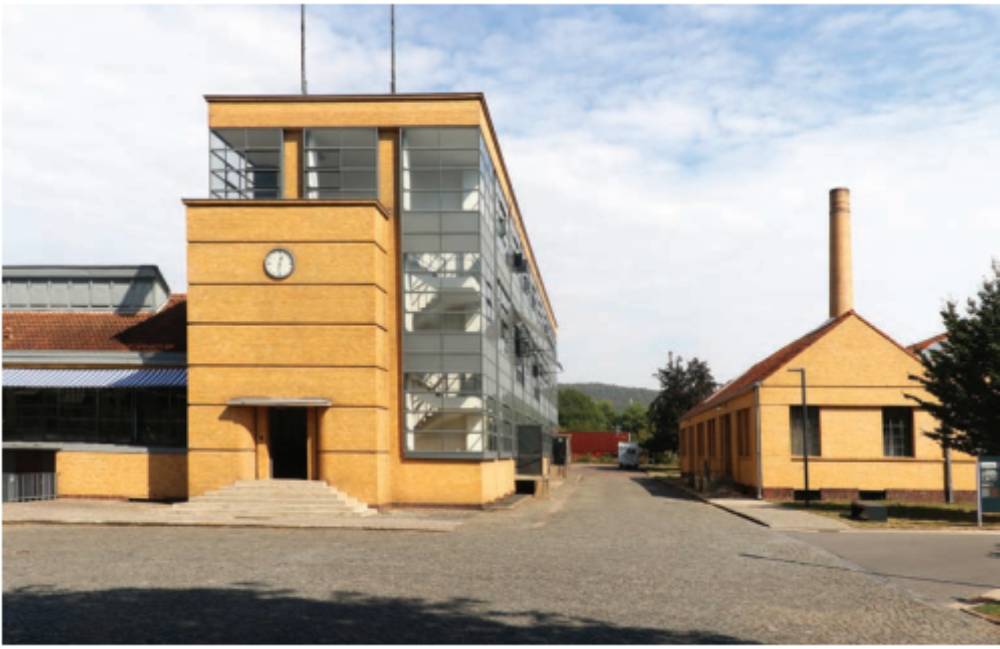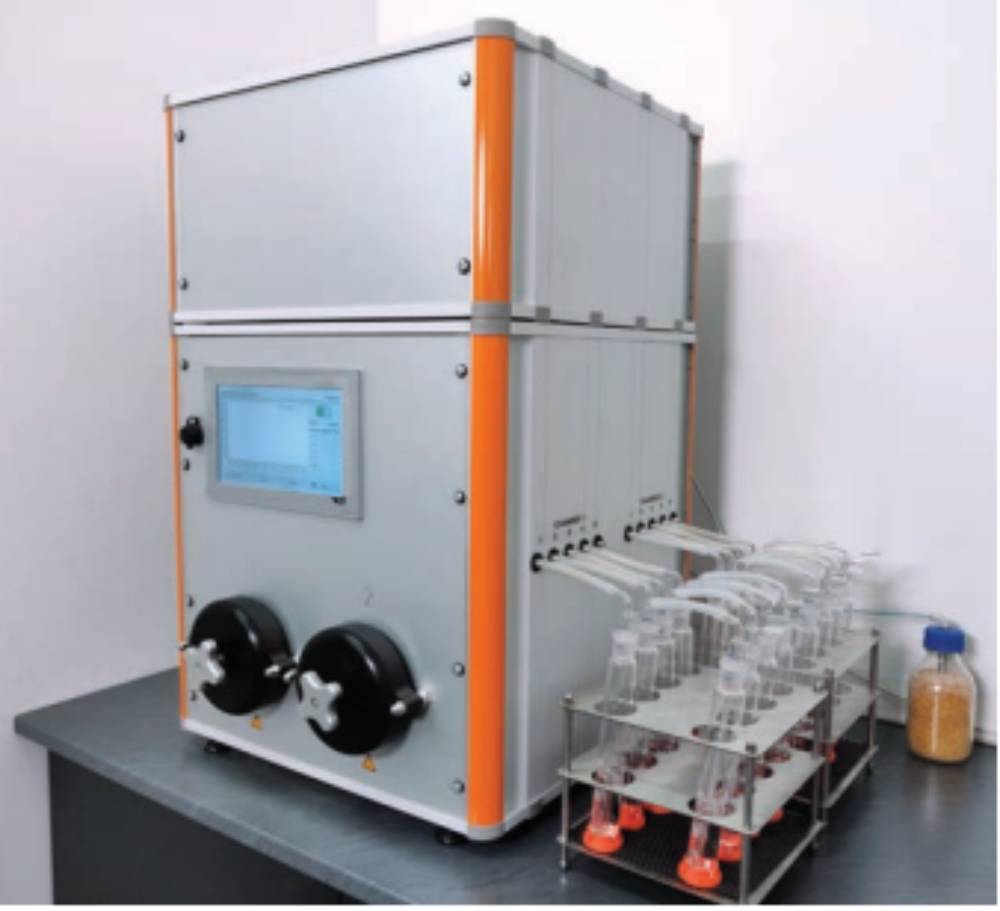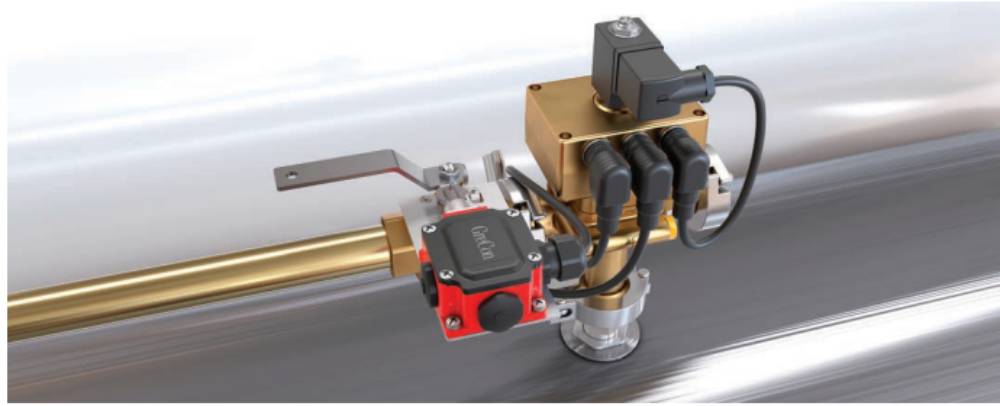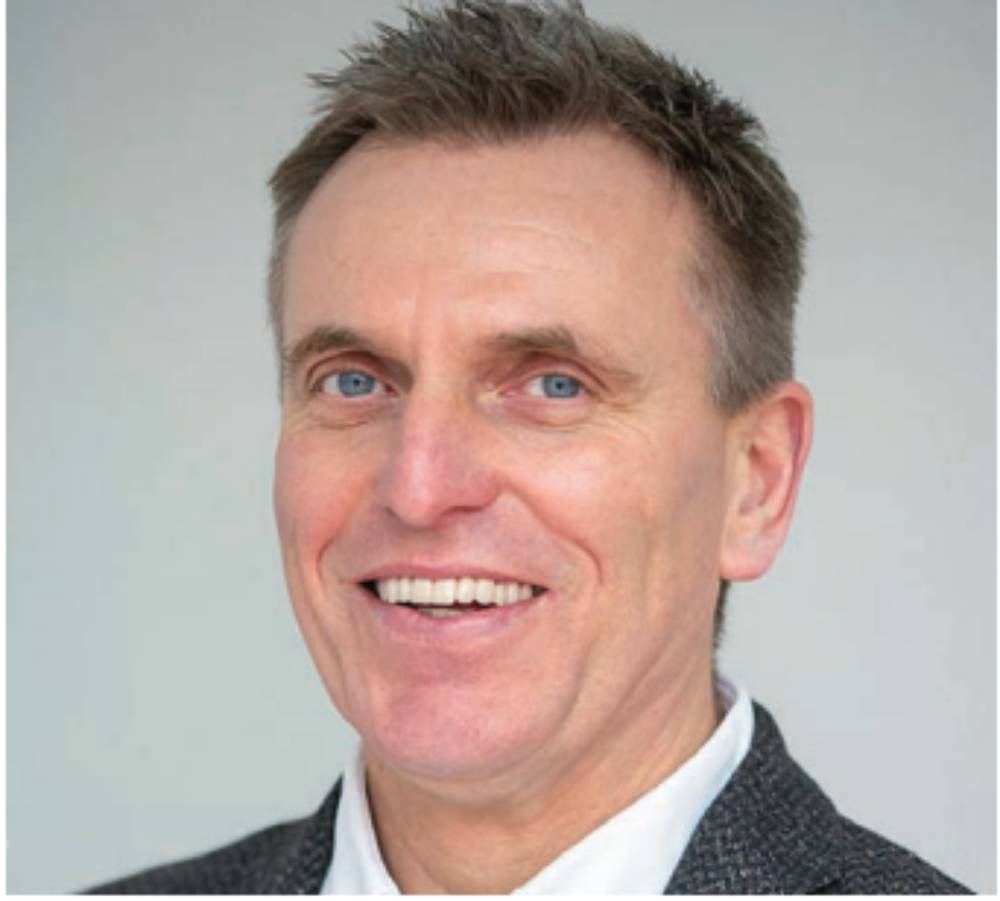Scanning the horizon
16 January 2023Fire prevention and measuring technology specialist Fagus Gre-Con is looking beyond the pandemic to meet the megatrends of increasing efficiency, reduced energy consumption, digitalisation and safety in the wood-based panels industry and several others industries which it serves. Stephen Powney reports
Near Hanover, fire prevention and measuring technology specialist FagusGreCon says it has been able to reinstate business growth after the disruption of the pandemic in 2020.
Heavy investments have been taking place in product development and internal systems, with aims to further improve customer service levels and help reduce waste, inefficiencies, energy and safety risks for customers. With the next Ligna show up ahead, there is optimism that its innovations can further the positive momentum.
Even its manufacturing site at Alfeld, a World Heritage site and where 460 of the company’s 700 workers are based, is receiving a steady stream of visitors once again to marvel at the historic Fagus production buildings.
Uwe Kahmann, managing director of Fagus-GreCon, was keen to summarise recent developments with his colleague in the fire prevention and measuring technology divisions.
“We did have a drop in business in 2020 because of the Covid-19 situation and the consequences of that was our business reduced by roughly 20%,” he said.
“In 2021 we were able to pick up the volume again. Then in 2022 we exceeded the 2021 results by a small percentage and are still calculating the final numbers.
“That could have been much more if we did not have the challenges of the supply market. We are carrying a very high doubledigit million euro order backlog from 2022 into 2023. There were orders when we were missing electrical parts, such as control items, which delayed shipments.
“It is a worldwide situation and I’m sure under normal circumstances we would have had double-digit growth in 2022.
We are planning on a double-digit growth in 2023.” Mr Kahmann said the global supply and logistics challenges may persist throughout 2023.
Of course, the company has also had to deal with the Ukraine conflict.
“Russia and Ukraine were good markets, but there are sanctions put on some of our products, so we are not able to serve our customers in Russia at this time – that’s also a considerable part of our business. So there are strong limitations there.”
The company is working with Swiss Krono and Kronospan in Ukraine, including the latter’s new Rivne plant in Ukraine, although plants in the country are not currently running at full capacity due to the war.
Elsewhere, Mr Kahmann sees high growth potential in South-east Asia, including Japan and Korea and also the North American, South American and European markets. He hopes the Chinese market can improve in the weeks following Chinese New Year. China in general has been between 7-10% of the group’s business.
He sees growth potential in the woodbased panel industry, though noted some cooling off and some projects put on hold.
The company is working closely with main plant suppliers Dieffenbacher and Siempelkamp on projects.
One market doing very well is the UK, where GreCon Ltd celebrated its 30th anniversary in 2022.
Jonathan Hamill, managing director of GreCon Ltd, said the company’s UK business experienced double-digit growth in 2022 from a varied product and market mix.
About 20 years ago, GreCon Ltd was heavily focused on the wood-based panels market. Although the panels industry is still very important, diversification has led to work in other areas, such as the recycling market.
“The main bulk in recycling is the production of SRF (solid recovered fuel) or RDF (refuse derived fuel), which is being exported from the UK to European countries,” said Mr Hamill. “Also, we have done a lot with the wood products manufacturing markets as well, including one leading UK timber producer’s manufacturer.”
The division has responded to its growth by restructuring in order to improve service levels. This has involved forming a new service and operations department and recruiting several new heads to better support customers.
“We also implemented Salesforce as our CRM (customer relationship management) system, to give a better digital service to our customers.”
Mr Kahmann said the new Salesforce CRM is being rolled out across the group to further enhance the customer experience worldwide. A new website is also up and running with a link to the CRM system so web leads can be directly uploaded to the latter.
“We are reinforcing digitalisation related to the products, focusing on the environment to reduce our cost footprint and helping our customers to reduce waste and energy consumption.”
Fagus-GreCon has also won a string of awards recently, a Kununu top employer award being one of them. The Kununu Awards are based on a digital platform on which employees can express their personal assessments in a protected way with regard to various criteria such as work atmosphere, work-life balance or colleague cohesion.
Mr Kahmann said the company is looking forward to having a “very impressive presence” at Ligna in May with new products to showcase
“We are on a growth path and continuing to hire people, especially in the sales and service departments,” he said.
FIRE PREVENTION
Turning to the area of fire prevention, a hugely important area for manufacturers of wood-based materials, Fagus-GreCon has found that the pandemic has accelerated digital communications with customers via use of Microsoft Teams and its automatic language transcription.
“These tools have made the world a little bit smaller and help with faster exchange [of information],” said Mario Haas, head of Business Unit Fire Prevention.
“The fire prevention business did great in 2022 and we over-exceeded our budget, travelled a lot and attended fairs again, which gave us a lot of tailwinds for 2023.”
Mr Haas said fire prevention investments initially dropped in the wood-based panels industry during the pandemic as companies lessened their investments.
“But we are having a strong market here in Europe with a lot of big projects in different industries.”
Elsewhere in the world, North America and Asia have been strong, except for China.
Mr Haas highlighted the popularity of belt dryers over traditional drum dryers as a big change in the wood-based panels market due to the former’s greater energy-saving characteristics.
Fagus-GreCon has a spark detection product for these products called the Flamewolf.
“We are partnering with two big belt dryer manufacturers,” added Mr Haas.
“We equip their belt dryers with our extinguishing and detector technology, which gives us a strong position. All belt dryers are different depending on their locations, environments and raw material being used, but we have a standardised product that can be adapted to how the customer is using the belt dryer.”
Although basic principles stay the same for both kinds of dryers, the drum-based dryers are more open to environmental circumstances due to their nature. Fire detection and extinguishing therefore becomes a bit easier using Flamewolf for belt dryers.
The change is a big opportunity for saving energy and digitalisation, added Mr Haas.
For instance, the company has a new product – the Intelligent Extinguishment Module (IEM) for highly precise monitoring of extinguishing and early wear recognition. It allows recognition and removal of clogged nozzles or a too-low flow pressure. Increasing wear of nozzles or valves will be reported predictively to permit targeted and efficient planning of maintenance.
Mr Haas says IEM, demonstrated to wood-based panels delegates at the recent industry Symposium in Hamburg, improves safety, with several customers introducing it on projects.
This technology is the counterpiece to the Intelligent Detector Technology (IDT) – part of the GreCon DLD 1/9 spark detector. This was launched at the last Ligna show.
“We do have some future projects, which are focused on the predictive side, using our intelligence to make a kind of AI to predict and judge the customer process. This will probably be for Ligna 2025.”
This push to give more analytics, data and information to customers is helping the panels industry and showing insurance companies how risk is being reduced in production processes, with the benefit of reducing potential costs associated with firerelated production shutdowns and reducing insurance premiums.
“Fire protection is always mitigation, you can never say its 100% effective, but you are part of the solution to reaching a 99% safety level.
“It is becoming more visible that we are one of the parts of safety and continuous production,” added Mr Haas.
This work has included the educational Open Your Eyes campaign, in tandem with a university, to detail what customers should be looking for to mitigate fire and explosion risk (the latter working with Rembe).
MEASURING TECHNOLOGY
Measuring Technology is the other major Fagus-GreCon area of expertise for the wood-based panels industry, covering measurement of thickness, delaminations, moisture and weight-per-unit-area, as well as a range of lab-based measurement systems.
About 80% of the division’s work is in the panels sector - the rest in the insulation, gypsum, plastics and other industries.
A big change has been new product names, moving away from German expressions/three-letter acronyms to unified English language names, which describe what the product does – such as Thickness Control.
At Ligna 2023, the company plans three or four big measuring systems development highlights
One of these, demonstrated at the EPF Symposium in Hamburg last year, is the Gas Analyser SL using laser spectroscopy, which has the capability to measure formaldehyde emissions in-line.
“After a lot of trials we now have a very good laser system, which is equivalent to [standard] wet chemistry testing,” said Jorg Hasener, head of Business Unit Measuring Technology.
“It’s a big step forward in the industry to bring the measurement time down to 15mins from four to six hours currently in the industry.”
There is now the prospect of new ISO standards to allow this method of testing in the future.
Other recent developments include the next generation X-ray scanner GreCon Mat Control HF (formerly Dieffensor) for MDF, OSB and PB, with the hardware redesigned to give easier maintenance for both customers and service technicians.
The scanner measures weight per unit area on the production line, giving a complete picture of the material distribution of the material directly after forming.
The in-line Thickness Control technology has also been redesigned for added precision in light of the trend, especially in China, for thin board production where boards may measure less than 1mm thick.
“It is really hard to calibrate the system with these thinner boards,” added Mr Hasener.
“The Thickness Control is using a new sensor inside which is more precise and takes less than 200 micro seconds to calibrate the system for thin board production.”
The product now has the same part for top and bottom heads to reduce spare parts.
Onto the Formator – consisting of Mat Control HF and scalping technology, the atter being know-how acquired from Binos in 2019.
This technology scans the mat after forming and removes excess material to reduce waste for panel producers and make production more efficient.
The Formator is in wide use within the MDF and OSB industries, but has not been in the PB sector due to multiple forming machines in PB lines making the application more difficult, plus the challenge of reducing mat density without reducing internal bond.
Now PB application is available for the first time.
“Initially, the focus was to reduce variations in the mat,” said Mr Hasener.
“But we see that you can also improve conditions in the hot press and reduce the thickness you have to sand in the sanding line.”
“In PB we can only control the core layer, you can’t influence the variations of surface layers. The benefits are not as high as with MDF but give enough improvement for the customer to invest in the machine.”
The GreCon Fibreview has also been redesigned to make use of latest camera developments in order to keep up with ever increasing production speeds.
ParticleView 3D was originally presented for PB application at the last Ligna show as a lab device to measure the 3D dimensions of the particles.
“I hope we can show at Ligna this year the first in-line system which we will install at a customer site,” said Mr Hasener.
“The wood-based panels industry will go further in the direction of inline measurement, not in labs.”
Ligna is surely going to be a busy time for Fagus-GreCon, with new innovations, new names and, the company hopes, some new customers as well!



